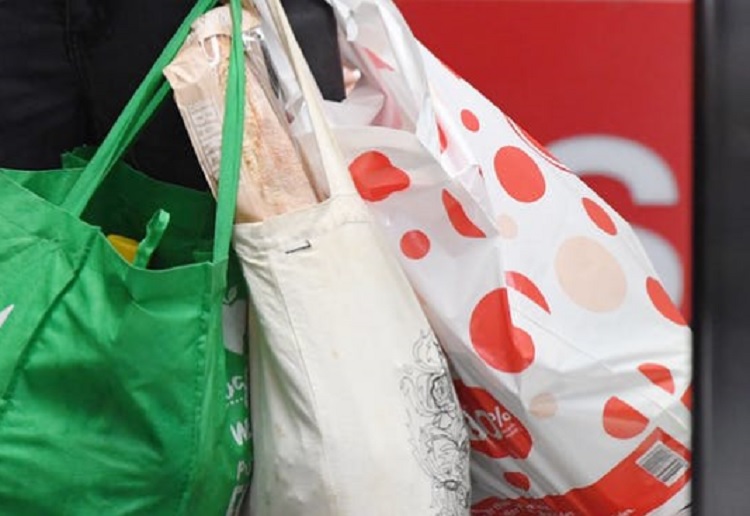Why plastic bag bans triggered such a huge reaction
Gary Mortimer, Queensland University of Technology and Rebekah Russell-Bennett, Queensland University of Technology
Woolworths’ and Coles’ bans on plastic bags have been applauded by environmental groups, but were reportedly met with abuse and assault and claims of profiteering. Even comedians saw value in the theatre of the bag ban.
This reaction is due to supermarkets breaching their “psychological contract” with customers. When both major supermarkets appeared to back flip in the face of irate customers it only compounded the problem”.
Unlike written legal contracts, psychological contracts are a set of “unwritten rules” or “expectations” exchanged between the parties in a transaction. This can be between an employee and employer, or a customer and a retailer.
These understandings are often tacit or implicit. They tend to be invisible, assumed, unspoken, informal or at best only partially vocalised.
The pre-ban psychological contract between supermarket and shopper was something like “I’ll shop with you and, in exchange, you’ll pack my purchases into a free plastic bag.”
There was an implicit financial exchange between parties. Shoppers spent money on groceries and the supermarket paid for providing a plastic bag.
With the bag ban the psychological contract changed: “I’ll shop with you and give up a plastic bag, you’ll also give up plastic in the store in other areas, and the environment will benefit.”
Supermarkets justified phasing out lightweight plastic bags with the idea of a corporate social responsibility strategy. Customers might have been glad to forgo single-use plastic bans to support a greener future, but this is where the problem occurred.
Shoppers began to realise that supermarkets were saving money (by no longer giving away bags for nothing), while they themselves incurred a cost (paying 15 cents or more, depending on the type of re-usable bag).
The supermarkets had not kept up their end of the psychological contract by reducing the use of plastic in the store, particularly in packaging. The social media comments largely reflect this.
When there is a psychological contract breach, people can engage in revenge and retaliation.
This can range from mild, such as venting on social media, to acts of sabotage like altering floor stock and stealing shopping baskets.
Compounding factors
A couple of other factors have compounded the perceived breach of contract.
Unlike smaller states and territories (South Australia, Tasmania, Northern Territory and the ACT) where state legislation has banned single-use plastic bags by all retailers, this was a retailer-imposed national ban.
Shoppers in these smaller states quickly became accustomed to not having free bags, as these were not available anywhere.
By simply backflipping soon after implementing the policy, the supermarkets also prompted shoppers to question their intentions and integrity.
While shoppers may have at first accepted the rationale for the ban, extended free bag periods sent the message that the supermarkets are not that serious about banning plastic bags for environmental reasons.
Read more:
Getting rid of plastic bags: a windfall for supermarkets but it won’t do much for the environment
While Woolworths has said it will channel “money made” from selling its “Bag for Good” scheme into a youth environmental scheme, customers also rightly question the cost savings and revenues generated.
Removing a single-use plastic bag is a positive first step, but it is only the beginning. Customers still walk in to supermarkets today and see many varieties of food wrapped in plastic, and they themselves place loose fruit and vegetables into plastic bags.
As a result of media coverage, customers are now more aware and sensitive of plastics throughout dry grocery departments. They see more and more unnecessary plastic packaging, like dry pasta in a box with a clear plastic window.
Fixing the plastic bag ban
There is certainly enough evidence that removing single-use bags leads to positive environmental outcomes. But a national, uniform approach is needed, supported by consumer awareness and education programs.
While many state and territory governments have legislated plastic bag bans, others have held out. The Victorian government last year announced plans to ban single-use plastic bags, but despite widespread consumer support, it is yet to come into effect.
Supermarkets need to be open about the financial aspects of plastic bags, both costs and revenues.
Consumers may understand the procurement and logistics costs of the replacement plastic bag options will be higher – because the bags are thicker and heavier, and it takes extra time to pack different-sized bag options.
Read more:
How to break up with plastics (using behavioural science)
The distribution of net profits (not gross profits) from the sale of all re-usable bag options should be channelled into sustainability programs, research grants and education schemes. Programs need to be benchmarked, measured and publicly announced.
Shoppers will be more accepting of change if they can comprehend how their small sacrifice (say 15 cents) is helping the environment.
Shoppers also have an important role to play in the scheme of things. While it will take some time to break old habits, responsibility rests with shoppers to remember to bring a bag. If they forget, they simply need to buy another one.
![]() Ultimately, the psychological contract needs to once again be aligned and in balance. To do this governments, retailers and consumers need to work together to solve this important environmental issue.
Ultimately, the psychological contract needs to once again be aligned and in balance. To do this governments, retailers and consumers need to work together to solve this important environmental issue.
Gary Mortimer, Associate Professor in Marketing and International Business, Queensland University of Technology and Rebekah Russell-Bennett, Social Marketing Professor, School of Advertising, Marketing and Public Relations, Queensland University of Technology
This article was originally published on The Conversation. Read the original article.
We may get commissions for purchases made using links in this post. Learn more.




















6:10 pm
11:59 pm
4:59 am
3:27 pm
11:18 pm
8:47 am
11:48 pm
5:13 pm
11:48 am
10:21 am
4:32 pm
2:12 pm
1:14 pm
12:13 pm
10:31 am
- 1
- 2
- »
Post a comment